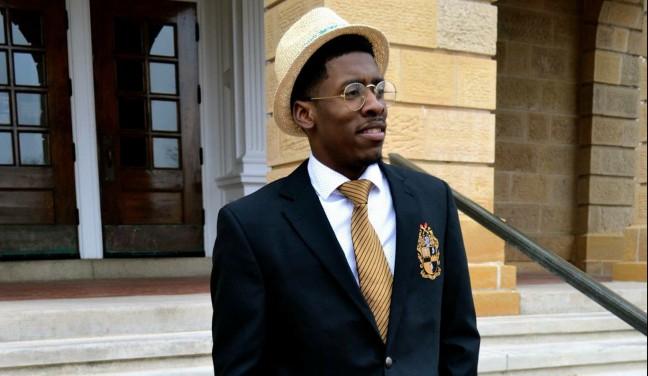Most college students don’t organize rallies that gather hundreds of students, administrators and community member to stand in solidarity for a single issue. But University of Wisconsin’s Kenneth Cole is an exception.
Cole has been active all his life, and whether it’s sports, art, poetry or bigger causes like social justice and racial equality, Cole said he puts his all into issues he’s passionate about.
Last year, Cole organized a “Black Out” rally at UW that gathered more than 500 students and community members alike to stand in solidarity against the marginalization of students of color on college campuses across the nation and at UW.
When Cole came to UW through the POSSE Program, which awards high school students scholarships based on their leadership and academic skills, he realized many problems that may not be common elsewhere are still prevalent in Wisconsin, especially on college campuses.
“I have friends from all types of different backgrounds in UW, and I think it was me having a lot of those friends and seeing a lot of their perspective and the overall perspective of the institution and the UW Badger experience that led me to get the knowledge that a lot of people don’t have a lot of racial and social tolerance on our campus,” Cole said.

Cole said he often corrects his friends’ wrongful perceptions of the black community. For instance, Cole said friends would ask him why he’s not on the football field, request to touch his hair or assume he was able to attend UW because of his racial identity instead of his academic ability.
Born and raised in Los Angeles, Cole said he never had to worry about being black or fitting into other people’s perceptions. Upon visiting his brother’s school, University of Southern California, he was able to be himself without feeling any kind of social pressure. Cole said USC has a 40 percent white population, which, while overwhelming, triumphs over UW’s black student population, which in 2014 measured a mere 2 percent.
“You get trapped in this kind of bubble,” Cole said. “You’re not necessarily yourself, you don’t feel comfortable and you’re always trying to fit into something else that’s not necessarily your genuine self.”
Cole said the moments that let him down the most in life were also the ones that prompted him to take on an activist role. After learning about social and criminal justice issues in the U.S., such as the high incarceration rates of minorities, Cole decided to be the voice for the downtrodden. He wants to go to law school, be a civil rights attorney, get involved in public policy and see laws changed to create a better social environment for all American citizens.
Cole’s passion for social causes was also inspired by his oldest brother, who passed away in 2009 in a motorcycle accident. Cole said his eldest brother was the first in his family to go to college, setting an example for Cole and his other brothers.
“Basically, he was my hero,” Cole said. “We came from a situation where people would tell you you’re probably not going to make it to college, or that you’re probably going to end up selling drugs, in jail, in a gang or dead. But he defied all those odds, went to college, graduated, owned a house, had a wife and kids — all of that at the age of 24.”
Despite the current racial situation on campus, Cole said he’s optimistic about the future of black student movements at UW because the “Black Out” rally gained great momentum.

His biggest philosophy is to stand in other people’s shoes, stay open-minded and try to understand their perspectives. It is especially important when it comes to improving racial relations on campus.
“UW-Madison has a fighting spirit,” Cole said. “I feel like even though it has its troubles, even someone like me can come and voice my opinions, have people support the ideals and be able to throw these ideas in the air, to test the waters and see if we can actually create some changes.”


